
Find Help
More Items From Ergsy search
-

Are there any risks associated with untreated ADHD?
Relevance: 100%
-
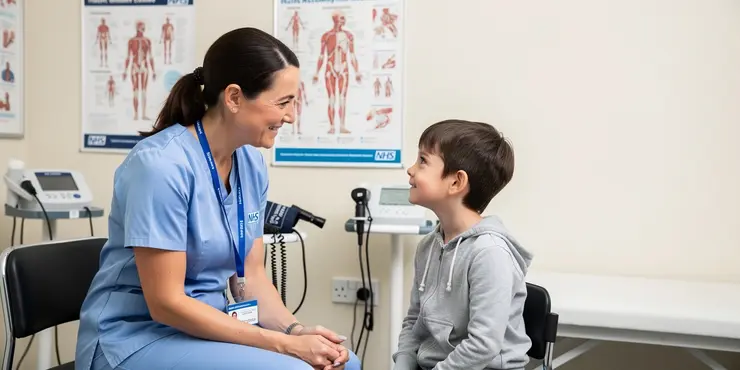
What is ADHD?
Relevance: 56%
-
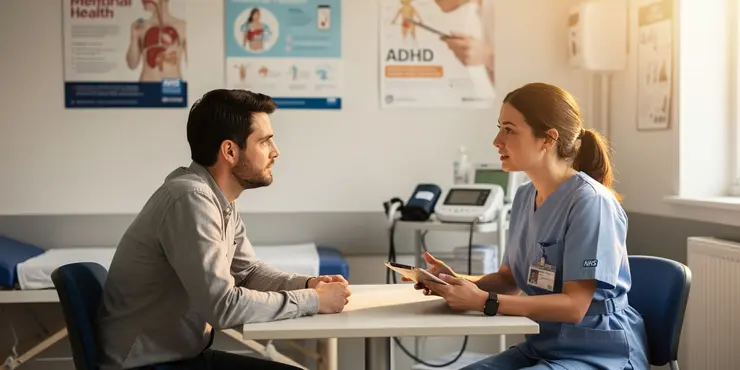
What causes ADHD?
Relevance: 51%
-

Is there a cure for ADHD?
Relevance: 50%
-
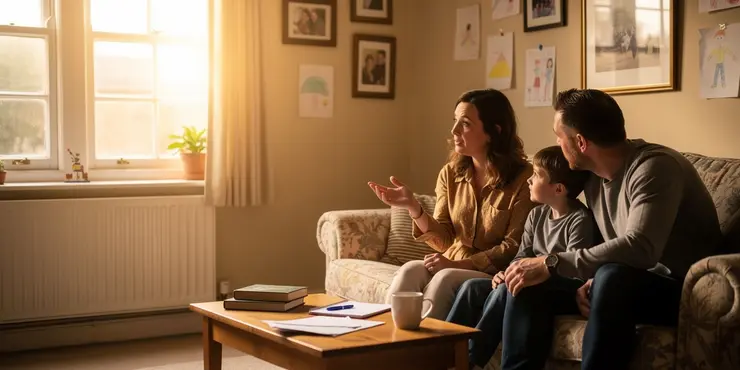
Can ADHD be inherited?
Relevance: 50%
-

Attention deficit hyperactivity disorder (ADHD) - Living with ADHD
Relevance: 49%
-

Can adults have ADHD?
Relevance: 48%
-

Are there different types of ADHD?
Relevance: 48%
-
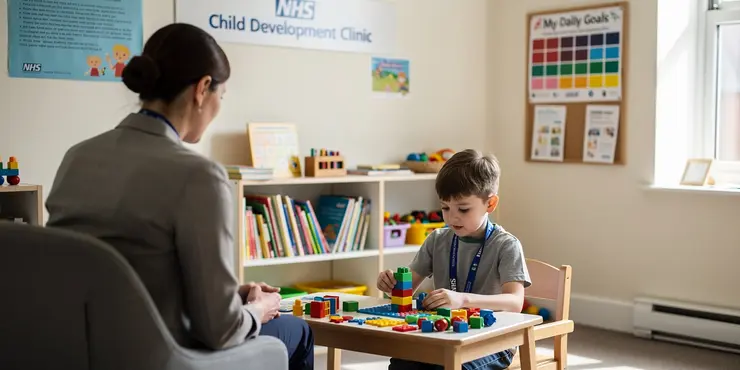
How is ADHD diagnosed?
Relevance: 47%
-

What are the main symptoms of ADHD?
Relevance: 47%
-
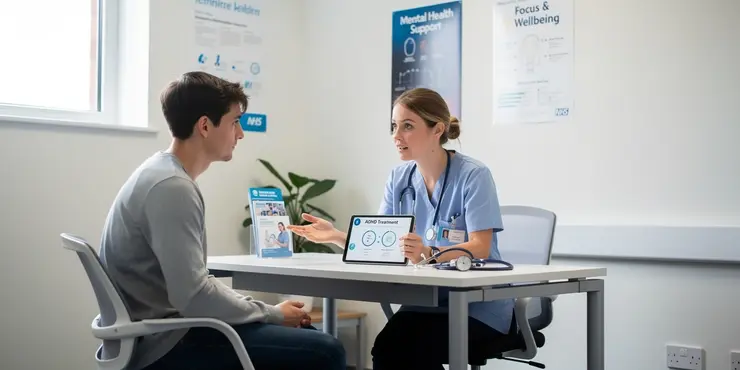
What are common treatments for ADHD?
Relevance: 46%
-
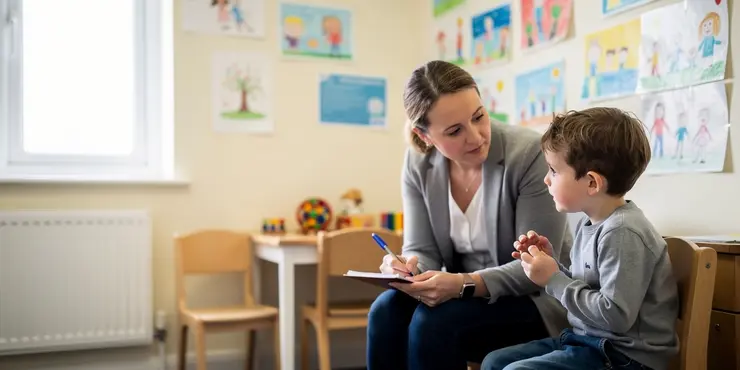
What role does the environment play in ADHD?
Relevance: 46%
-

Can therapy help individuals with ADHD?
Relevance: 45%
-

Is ADHD more common in boys or girls?
Relevance: 44%
-

Can diet affect ADHD symptoms?
Relevance: 44%
-
How can I get tested for ADHD?
Relevance: 44%
-

Attention deficit hyperactivity disorder (ADHD) - Introduction
Relevance: 44%
-
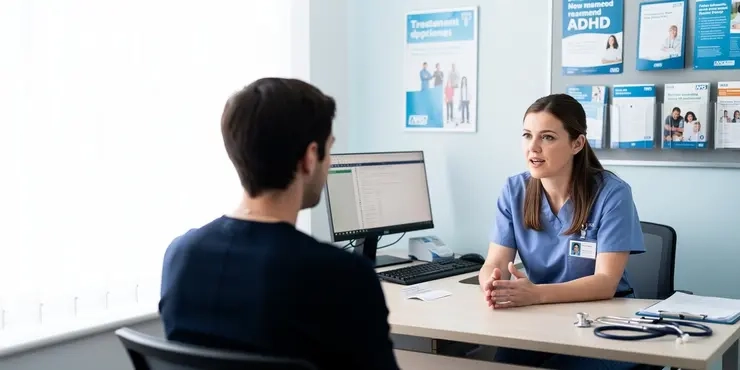
Attention deficit hyperactivity disorder (ADHD) - Treatment
Relevance: 44%
-
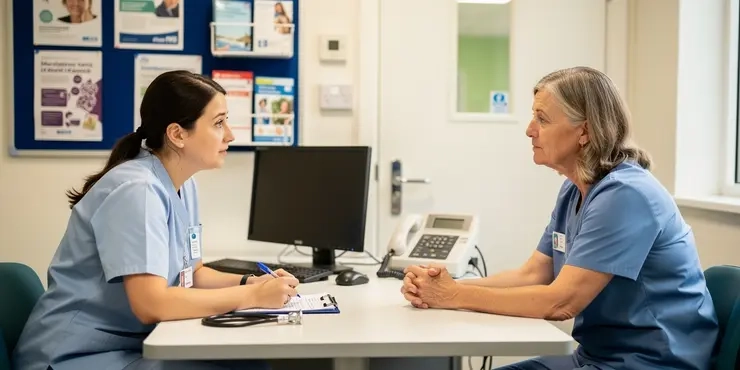
Attention deficit hyperactivity disorder (ADHD) - Diagnosis
Relevance: 43%
-

Can lifestyle changes help manage ADHD?
Relevance: 43%
-
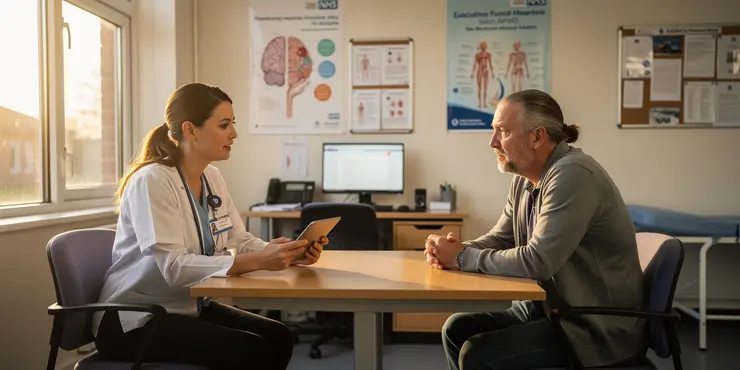
How does ADHD affect executive function?
Relevance: 43%
-
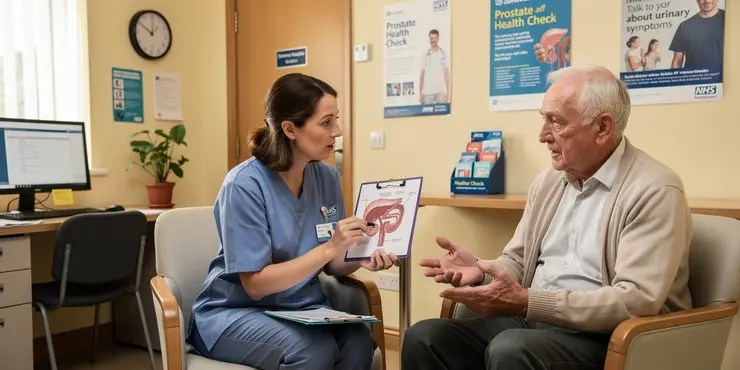
Are there any complications associated with untreated BPH?
Relevance: 42%
-

How can teachers support students with ADHD?
Relevance: 42%
-
What are the long-term effects of untreated eating disorders?
Relevance: 38%
-
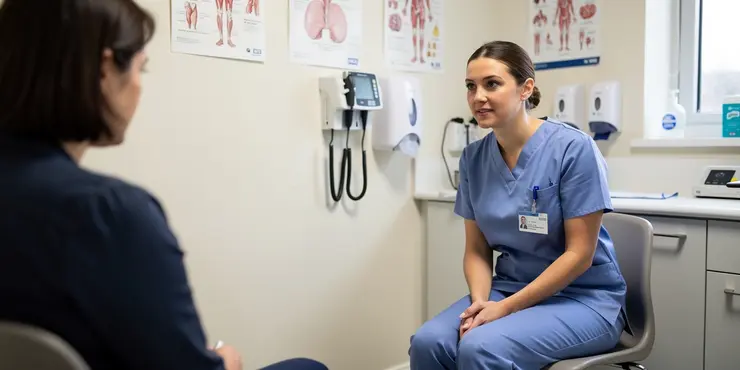
What is ADHD?
Relevance: 38%
-
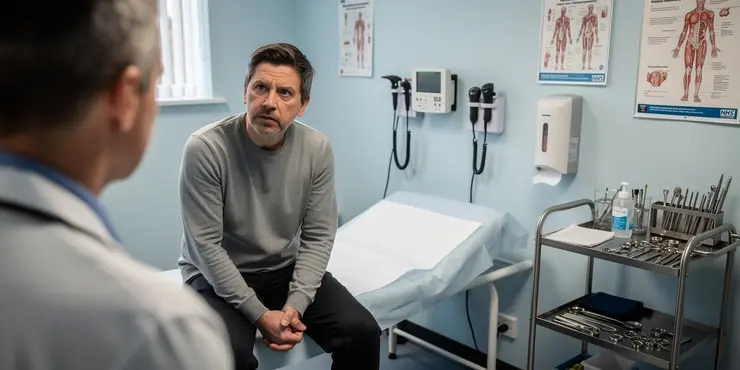
What happens if appendicitis is left untreated?
Relevance: 38%
-
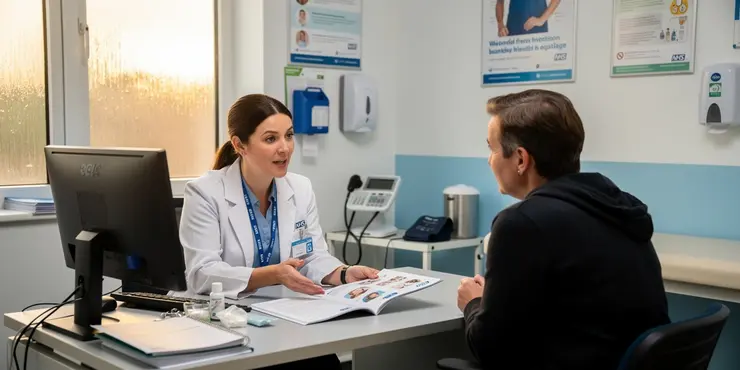
What is the mortality rate of untreated bubonic plague?
Relevance: 38%
-
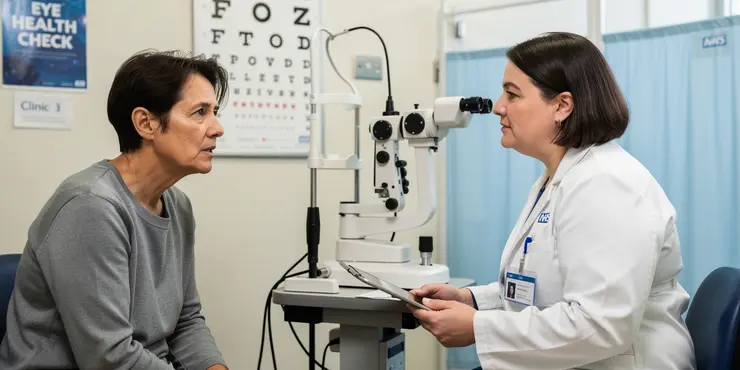
What complications can arise from untreated hypotony?
Relevance: 38%
-

What happens if Lyme disease is left untreated?
Relevance: 36%
-
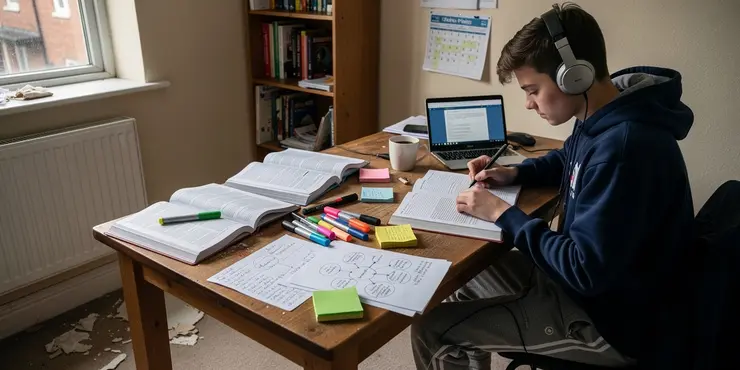
Can ADHD affect academic performance?
Relevance: 33%
-
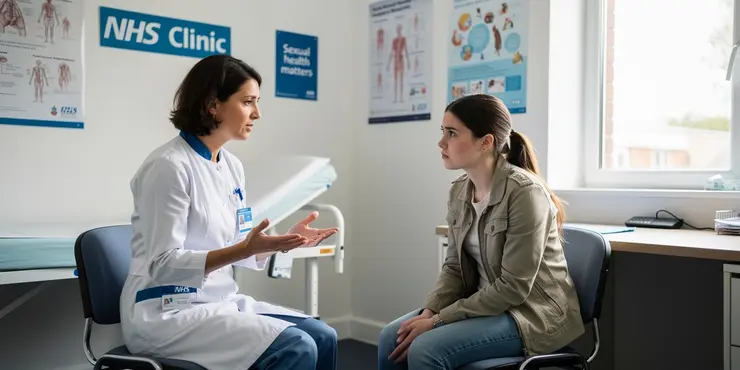
Can gonorrhoea cause complications if left untreated?
Relevance: 30%
-
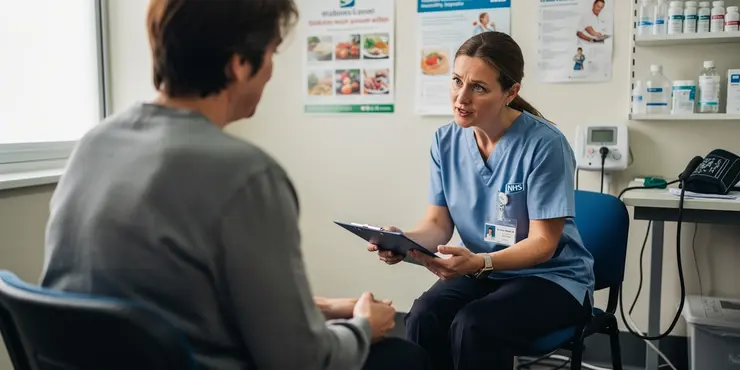
Is there any risk of hypoglycemia with Mounjaro?
Relevance: 23%
-
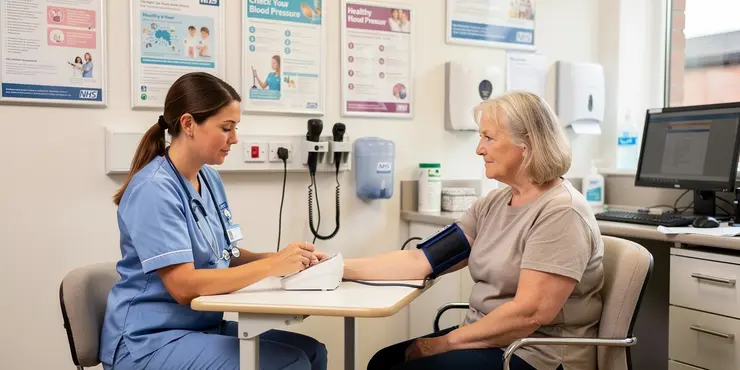
What are the risks of having high blood pressure?
Relevance: 21%
-

Are there risks associated with IVF?
Relevance: 20%
-
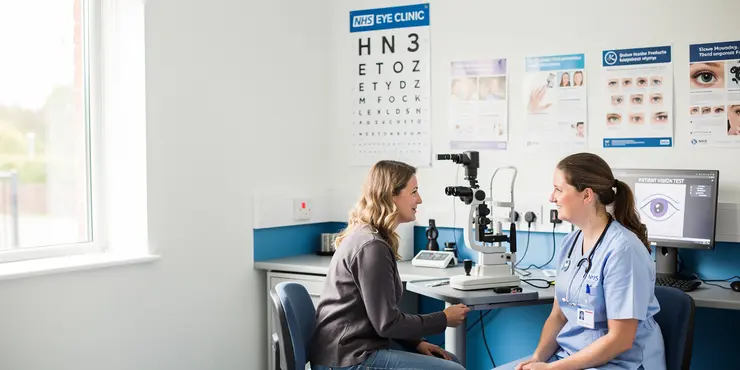
Are there any risk factors for developing hypotony?
Relevance: 19%
-
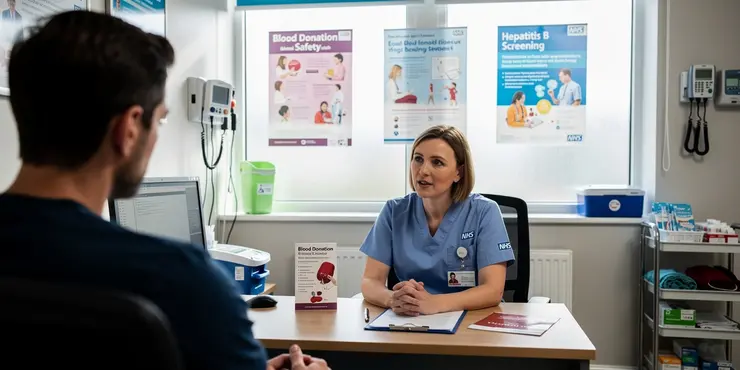
Is Hepatitis B a risk in blood transfusions?
Relevance: 19%
-
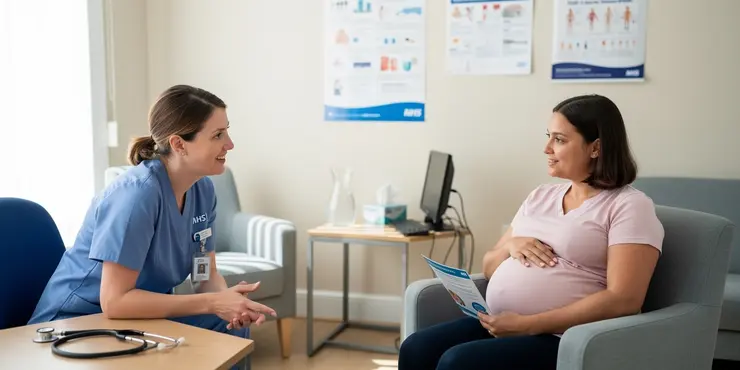
Why is there concern about paracetamol and autism?
Relevance: 19%
-

How can the risks and benefits of medications during pregnancy be assessed?
Relevance: 19%
-
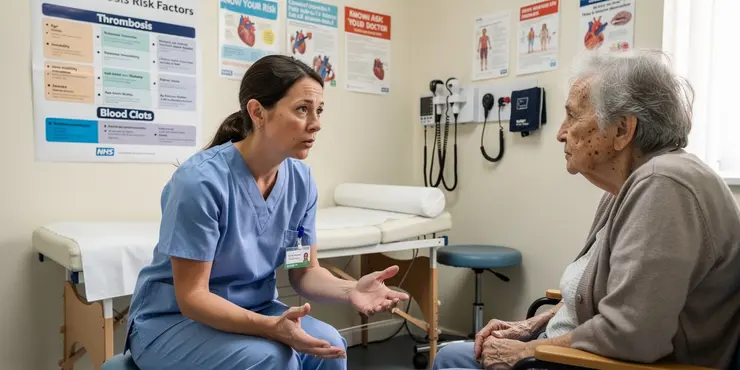
Who is at higher risk for thrombosis?
Relevance: 19%
-
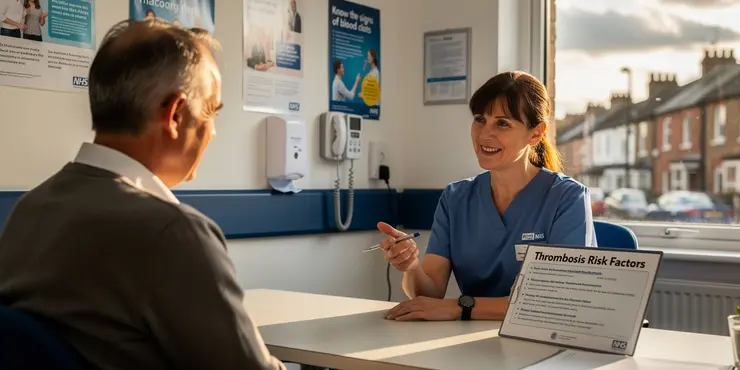
What are the risk factors for thrombosis?
Relevance: 19%
Understanding ADHD
Attention Deficit Hyperactivity Disorder (ADHD) is a neurodevelopmental disorder characterized by symptoms of inattention, hyperactivity, and impulsivity. If left untreated, ADHD can have significant repercussions on various aspects of an individual's life. While many people may perceive ADHD as a condition primarily affecting children, it is important to recognize that it often persists into adulthood and can have long-term consequences if not managed effectively.
Academic and Occupational Challenges
One of the main risks of untreated ADHD is its impact on academic and occupational performance. Children with untreated ADHD may struggle with following instructions, completing tasks, and maintaining attention during lessons. This can lead to poor academic performance, repeated feedback from teachers about behavior, and an increased likelihood of school dropout. In adults, untreated ADHD may result in difficulties at work. Individuals may experience challenges in meeting deadlines, staying organized, and maintaining productivity. This can stifle career progression and lead to job instability or underemployment.
Social and Relationship Issues
ADHD can also affect social interactions and relationships. People with untreated ADHD may have difficulty maintaining friendships due to impulsive behavior, misunderstandings, and challenges in social communication. In adults, these issues can extend to romantic relationships and family dynamics. Impulsivity and inattention can lead to conflicts, misunderstandings, and a lack of cohesion within relationships. Over time, untreated ADHD can contribute to social isolation and affect emotional well-being.
Mental Health Risks
Another significant risk of untreated ADHD encompasses mental health. Individuals with ADHD are at an increased risk of developing other mental health disorders, such as anxiety and depression. The struggles and frustrations of dealing with symptoms can exacerbate feelings of low self-esteem and helplessness. Moreover, the constant stress involved in managing daily activities without treatment can contribute to chronic stress and associated mental health issues. Early intervention can reduce these risks and improve overall quality of life.
Risky Behaviors and Comorbidities
Untreated ADHD is often associated with engaging in risky behaviors. Due to impulsivity and a potential lack of foresight, individuals may be more prone to accidents or making decisions that have negative consequences. This can include substance abuse, reckless driving, or other behaviors that put them in harm's way. Furthermore, ADHD frequently coexists with other disorders, such as learning disabilities or conduct disorder, which may complicate the clinical picture if left unaddressed.
The Importance of Early Intervention
Overall, the potential risks associated with untreated ADHD underscore the importance of seeking a comprehensive evaluation and appropriate interventions. These interventions may include medication, behavioral therapy, or lifestyle adjustments tailored to the individual's needs. By addressing ADHD proactively, individuals can improve their daily functioning, foster better relationships, and enhance their overall quality of life. Consulting healthcare professionals and exploring available resources can guide those affected towards a positive path forward.
Understanding ADHD
ADHD stands for Attention Deficit Hyperactivity Disorder. It is a disorder that affects the brain and makes it hard to pay attention, sit still, and think before acting. If ADHD is not treated, it can cause problems in many parts of life. People often think ADHD only affects children, but it can also affect adults. If not treated, it can cause problems that last a long time.
Problems at School and Work
If ADHD is not treated, it can make learning and working hard. Kids with ADHD might find it hard to follow instructions and finish their work. They might not do well in school, and teachers might often talk to their parents about behavior problems. Kids with ADHD might drop out of school. Adults with ADHD might have trouble at work. They might find it hard to meet deadlines, stay organized, and be productive. This can make it hard to keep a job or get a better one.
Problems with Friends and Family
ADHD can make it hard to get along with others. People with ADHD might find it hard to keep friends because they might act without thinking, have misunderstandings, or have trouble talking. Adults with ADHD might have the same problems with their partners and family members. This can lead to fights and hurt feelings. Over time, people with untreated ADHD might feel lonely and sad.
Mental Health Problems
If ADHD is not treated, it can make other mental health problems worse. People with ADHD might also feel more anxious or depressed. Not being able to deal with ADHD symptoms can make people feel bad about themselves. The stress of trying to do everyday things without help can lead to more stress and mental health problems. Getting help early can make life better and reduce these risks.
Risky Actions and Other Problems
When ADHD is not treated, people might do risky things. They might act without thinking and get hurt or make bad choices. This can include using drugs, driving recklessly, or doing other dangerous activities. ADHD often happens with other problems, like learning disabilities, which can make things more complicated if not taken care of.
Why Getting Help Early Is Important
Getting help early for ADHD is very important. Treatment might include medicine, talking to a therapist, or making changes to everyday life. With the right help, people with ADHD can do better in life, have better relationships, and feel better overall. Seeing a doctor and using support tools can help people with ADHD find a positive way forward.
Frequently Asked Questions
What are the general risks of untreated ADHD?
Untreated ADHD can lead to various complications such as academic difficulties, low self-esteem, relationship problems, and increased risk of substance abuse.
How does untreated ADHD affect academic performance?
Individuals with untreated ADHD often struggle with concentrating, following instructions, and completing tasks, leading to poor academic performance and difficulties in school.
Can untreated ADHD impact relationships?
Yes, untreated ADHD can result in misunderstandings, communication issues, and conflicts in personal and professional relationships.
Is there a link between untreated ADHD and mental health problems?
Yes, untreated ADHD can increase the risk of developing anxiety, depression, and other mental health disorders.
Does untreated ADHD increase the risk of substance abuse?
Individuals with untreated ADHD may use drugs or alcohol as a way to cope with symptoms, leading to a higher chance of substance abuse or addiction.
Are there financial consequences associated with untreated ADHD?
Yes, challenges in maintaining employment and managing finances can lead to economic instability for individuals with untreated ADHD.
Can untreated ADHD lead to self-esteem issues?
Yes, chronic struggles with daily tasks and negative feedback can result in low self-esteem and self-doubt in individuals with untreated ADHD.
How does untreated ADHD affect driving?
Untreated ADHD can impair attention and impulsivity, leading to an increased risk of driving accidents and traffic violations.
Is there a connection between untreated ADHD and employment challenges?
People with untreated ADHD may experience difficulty in maintaining focus, meeting deadlines, and staying organized, affecting their job performance and career progression.
Does untreated ADHD affect physical health?
Untreated ADHD can lead to a sedentary lifestyle, poor eating habits, and neglect of medical care, impacting overall physical health.
Can untreated ADHD result in legal issues?
Impulsivity and poor decision-making associated with untreated ADHD may lead to legal troubles, such as arrests or fines.
How does untreated ADHD impact social life?
Difficulty in interpreting social cues and maintaining friendships can lead to social isolation for individuals with untreated ADHD.
Are children with untreated ADHD at risk for educational gaps?
Yes, untreated ADHD in children can result in learning delays and gaps in education due to attention problems and inconsistent performance.
Does untreated ADHD contribute to chronic stress?
Living with untreated ADHD symptoms can lead to chronic stress, affecting both mental and physical health.
Can untreated ADHD lead to burnout?
Yes, the ongoing struggle to manage tasks and responsibilities without support can result in burnout for individuals with untreated ADHD.
Can untreated ADHD lead to eating disorders?
Impulsivity and poor self-regulation associated with untreated ADHD may increase the risk of developing unhealthy eating patterns or eating disorders.
Are individuals with untreated ADHD more prone to risky behaviors?
Yes, untreated ADHD is associated with an increased likelihood of engaging in impulsive and risky behaviors.
What is the impact of untreated ADHD on family dynamics?
Untreated ADHD can strain family relationships due to misunderstandings, unmet expectations, and increased stress.
Does untreated ADHD affect emotional regulation?
Individuals with untreated ADHD often struggle with controlling emotions, leading to frequent mood swings and heightened emotional responses.
Are there any long-term effects of untreated ADHD?
Long-term effects of untreated ADHD can include chronic mental health issues, ongoing relationship difficulties, and reduced overall life satisfaction.
What can happen if ADHD is not treated?
If ADHD is not treated, it can cause problems. These problems can be:
- Having a hard time at school
- Feeling bad about yourself
- Having trouble with friends or family
- A higher chance of using drugs or alcohol
Here are some things that can help:
- Using a planner to remember things
- Setting small goals to stay focused
- Talking to a teacher or counselor for support
- Asking a doctor for help
What happens to school work if ADHD is not treated?
People who have ADHD and do not get help can have a hard time paying attention. They might find it tough to follow instructions and finish their work. This can make it hard for them to do well in school.
Some tools that can help are: making a plan for the day, having a quiet place to work, and taking breaks to rest.
Can ADHD that is not treated affect friendships?
ADHD is a condition that can make it hard to focus and control actions. If ADHD is not treated, it can cause problems with making friends and getting along with people.
If someone has untreated ADHD, they might forget important things, not listen well, or have a hard time sharing. This can make friends and family feel upset or ignored.
To help with ADHD, you can use reminders, make lists, and talk to a doctor or therapist. These tools can make friendships better and easier.
Yes, if ADHD is not treated, it can cause problems. People might not understand each other and have trouble talking. This can lead to fights at home and at work.
Can not treating ADHD cause other mental health problems?
ADHD stands for Attention Deficit Hyperactivity Disorder.
If someone has ADHD and does not get help, it might lead to other problems.
These problems can include feeling very sad or worried.
Talking to a doctor or counselor can be helpful.
Playing, resting, and eating healthy food can also help.
Yes, if ADHD is not treated, it can make it easier to get anxiety, depression, and other mental health problems.
Can ADHD make people use drugs or alcohol more?
People who have ADHD and don’t get help might use drugs or alcohol to feel better. This can lead to problems like using too much or getting addicted.
What happens with money if ADHD is not treated?
People with ADHD can have a hard time keeping jobs and handling money. This can make their money problems worse if ADHD is not treated.
Can ADHD that is not treated make you feel bad about yourself?
Yes, having a hard time every day and hearing bad things about yourself can make you feel bad about yourself if you have ADHD that isn't being treated.
Here are some tips and tools that can help:
- Use a planner or calendar to keep track of tasks.
- Set small goals to make things easier.
- Ask for help when you need it.
- Use reminder apps on your phone or tablet.
- Talk to someone you trust about how you feel.
What happens when you drive with ADHD and don't get help?
If someone has ADHD and doesn't get help, driving can be harder. They might not pay attention well or make quick choices. This can cause mistakes when driving.
Here are ways to be safer:
- Get help from a doctor.
- Practice focus games to get better at paying attention.
- Take breaks during long drives.
- Use a reminder to check mirrors and signs.
If ADHD is not treated, it can make it hard to pay attention and control impulses. This can make it more likely for someone to have car accidents and break traffic rules.
Does having ADHD without treatment make it hard to get a job?
People with ADHD who don't get help might find it hard to pay attention, finish work on time, and keep things in order. This can make doing their job harder and might slow down their progress at work.
Can ADHD hurt your body if you don't get help?
If ADHD is not treated, it can cause problems. People might not move around much, eat unhealthy food, or forget to take care of their health. This can make their bodies less healthy.
Can not treating ADHD cause legal problems?
If ADHD is not treated, it might lead to trouble with the law. People with ADHD might find it hard to focus, follow rules, or control impulses. This can sometimes cause problems.
To help manage ADHD, you can:
- Talk to a doctor about treatment options.
- Use reminders like notes or alarms to stay on track.
- Practice relaxation techniques to stay calm.
When someone has ADHD and doesn't get help, they might make quick choices without thinking. This can get them into trouble, like being arrested or having to pay a fine.
What happens if ADHD is not treated?
People with ADHD might find it hard to understand social clues. This can make it tricky to keep friends. When they don't get help, they can feel alone.
Can children with ADHD have trouble in school if they do not get help?
Yes, if a child with ADHD does not get help, they might have trouble learning. This is because they find it hard to pay attention and might not always do their best at school.
Can ADHD that is not treated cause stress all the time?
When ADHD is not treated, it can cause a lot of stress. This stress can make your mind and body feel unwell.
Can ADHD make you very tired if it's not treated?
Yes, trying to do all your tasks and jobs without help can make you very tired and stressed if you have ADHD and do not get treatment.
Can having ADHD and not getting help cause problems with eating?
If ADHD is not treated, it can be hard for someone to control their actions and feelings. This might make it easier for them to eat in ways that are not healthy, or even have eating problems.
Do people with ADHD take more risks if they don't get help?
If someone has ADHD and doesn't get help, they might do things without thinking. They could also do things that are not safe.
How does ADHD affect families if it is not treated?
If ADHD is not treated, it can be hard on families. They might get upset with each other because they do not understand the behaviors. People might expect too much from someone with ADHD, and everyone can feel more stressed.
Can ADHD make it hard to control feelings if not treated?
People who do not treat their ADHD can have trouble with their feelings. This means they might feel very happy or very sad quickly and often.
Can ADHD cause problems if it is not treated for a long time?
If ADHD is not treated, it can cause problems for a long time. People might feel sad or worried a lot. They might have trouble getting along with others. They might not feel happy about their life.
Useful Links
This website offers general information and is not a substitute for professional advice.
Always seek guidance from qualified professionals.
If you have any medical concerns or need urgent help, contact a healthcare professional or emergency services immediately.
Some of this content was generated with AI assistance. We’ve done our best to keep it accurate, helpful, and human-friendly.
- Ergsy carfully checks the information in the videos we provide here.
- Videos shown by Youtube after a video has completed, have NOT been reviewed by ERGSY.
- To view, click the arrow in centre of video.
- Most of the videos you find here will have subtitles and/or closed captions available.
- You may need to turn these on, and choose your preferred language.
- Go to the video you'd like to watch.
- If closed captions (CC) are available, settings will be visible on the bottom right of the video player.
- To turn on Captions, click settings .
- To turn off Captions, click settings again.
More Items From Ergsy search
-

Are there any risks associated with untreated ADHD?
Relevance: 100%
-

What is ADHD?
Relevance: 56%
-

What causes ADHD?
Relevance: 51%
-

Is there a cure for ADHD?
Relevance: 50%
-

Can ADHD be inherited?
Relevance: 50%
-

Attention deficit hyperactivity disorder (ADHD) - Living with ADHD
Relevance: 49%
-

Can adults have ADHD?
Relevance: 48%
-

Are there different types of ADHD?
Relevance: 48%
-

How is ADHD diagnosed?
Relevance: 47%
-

What are the main symptoms of ADHD?
Relevance: 47%
-

What are common treatments for ADHD?
Relevance: 46%
-

What role does the environment play in ADHD?
Relevance: 46%
-

Can therapy help individuals with ADHD?
Relevance: 45%
-

Is ADHD more common in boys or girls?
Relevance: 44%
-

Can diet affect ADHD symptoms?
Relevance: 44%
-
How can I get tested for ADHD?
Relevance: 44%
-

Attention deficit hyperactivity disorder (ADHD) - Introduction
Relevance: 44%
-

Attention deficit hyperactivity disorder (ADHD) - Treatment
Relevance: 44%
-

Attention deficit hyperactivity disorder (ADHD) - Diagnosis
Relevance: 43%
-

Can lifestyle changes help manage ADHD?
Relevance: 43%
-

How does ADHD affect executive function?
Relevance: 43%
-

Are there any complications associated with untreated BPH?
Relevance: 42%
-

How can teachers support students with ADHD?
Relevance: 42%
-
What are the long-term effects of untreated eating disorders?
Relevance: 38%
-

What is ADHD?
Relevance: 38%
-

What happens if appendicitis is left untreated?
Relevance: 38%
-

What is the mortality rate of untreated bubonic plague?
Relevance: 38%
-

What complications can arise from untreated hypotony?
Relevance: 38%
-

What happens if Lyme disease is left untreated?
Relevance: 36%
-

Can ADHD affect academic performance?
Relevance: 33%
-

Can gonorrhoea cause complications if left untreated?
Relevance: 30%
-

Is there any risk of hypoglycemia with Mounjaro?
Relevance: 23%
-

What are the risks of having high blood pressure?
Relevance: 21%
-

Are there risks associated with IVF?
Relevance: 20%
-

Are there any risk factors for developing hypotony?
Relevance: 19%
-

Is Hepatitis B a risk in blood transfusions?
Relevance: 19%
-

Why is there concern about paracetamol and autism?
Relevance: 19%
-

How can the risks and benefits of medications during pregnancy be assessed?
Relevance: 19%
-

Who is at higher risk for thrombosis?
Relevance: 19%
-

What are the risk factors for thrombosis?
Relevance: 19%


